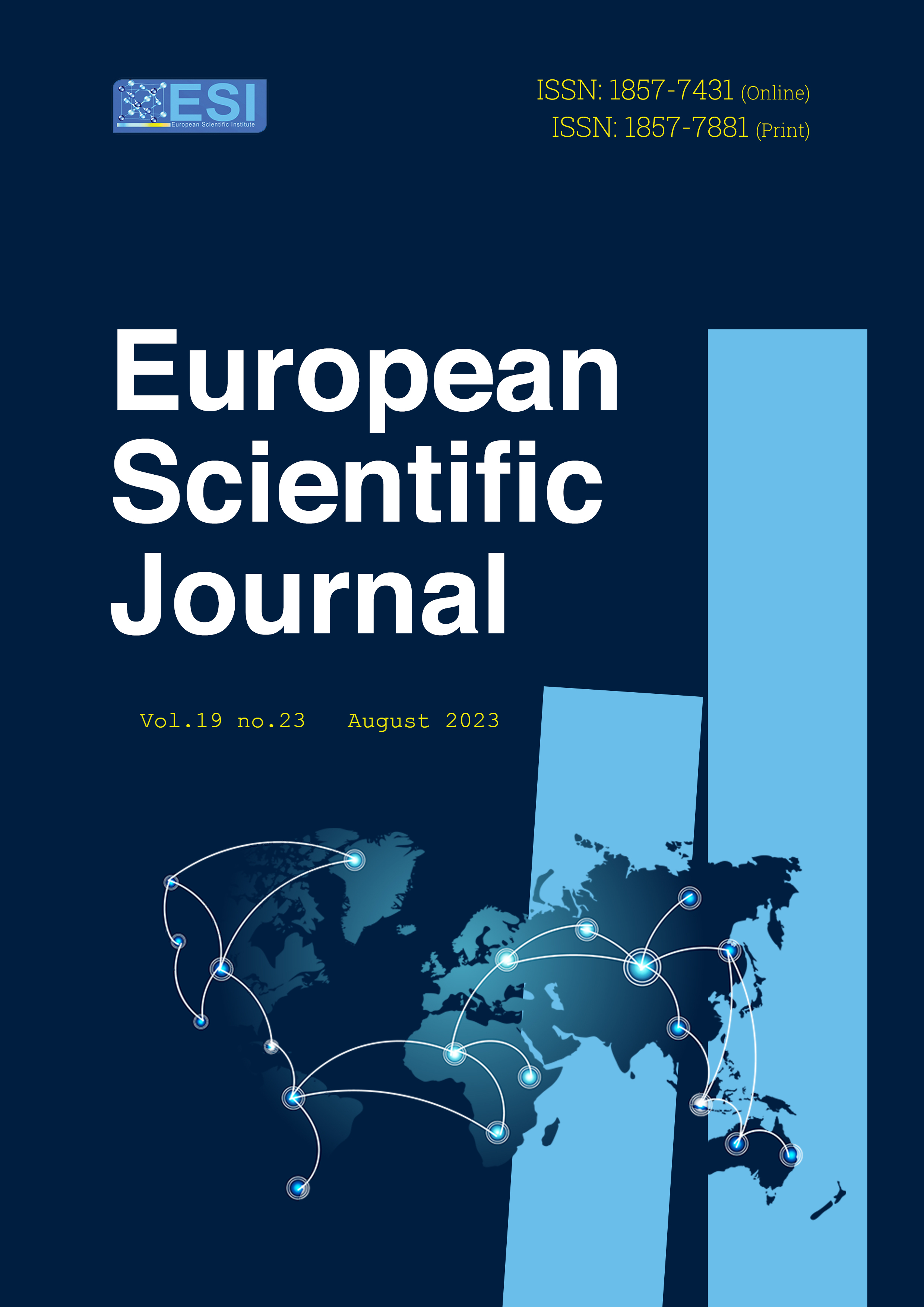Fight Corruption the EU Membership Requirement: The Case of Albania
Abstract
Corruption is one of the most crucial challenges which emerges as a solid opponent to the universal rule of the law. This paper examines the issue of combating corruption in Albania and its significance in the context of the country's pursuit of EU membership. Drawing upon the political and juridical history of Albania, the study highlights the close link between political culture and combating corruption in Southeast Europe. It underscores the challenges faced by Albania in combating corruption due to its difficult political past and the shortcomings in the development and enforcement of the law. The implementation of the Justice Reform in Albania is recognized as a significant step toward combating corruption, but the process has encountered obstacles and delays. The paper emphasizes the importance of respecting the deadlines set for the reform and ensuring the functioning of the judicial system to safeguard citizens' rights. Recommendations are provided, including the need for a safety net to prevent critical vacancies in the judiciary, restraining the right to resign during vetting procedures, and ensuring adequate logistical support and independence for new judicial institutions. The study concludes by emphasizing the ongoing fight against combating corruption as an essential requirement for Albania's EU membership and the need for sustained efforts to address the shortcomings identified in the process.
Downloads
PlumX Statistics
References
2. La Spina, A. (2020). Fighting Corruption. The Politics of Public Administration Reform in Italy, 75.
3. Olken, Corruption perceptions vs. corruption reality, Journal of Public Economics, 93(7-8), pp. 950–964.
4. Grmuša, L. G. (2010). The underworld and its forces: Croatia, the Uskoks and their fight for autonomy in Against the Day. In Against the Grain (pp. 263-289). Brill.
5. G. M. Azarenkova, A. Buriachenko, T. Zhyber, Anticorruption efficacy in public procurement, Financial and Credit Activity: Problems of Theory and Practice, 2(33), pp. 66–73.
6. H. Glynn, T. Amukele, T. Vian, Corruption, American Journal of Clinical Pathology.
7. K. Jain, Corruption: A Review, Journal of Economic Surveys, 15(1), pp. 71–121.
8. M. Khawaja, Fighting Corruption, Arab Human Development in the Twenty-First Century, pp. 105–130.
9. Maliqi, Justice Reform: Challenge or Change, Conference: Justice System in the Crossroads of Transformation, SHLUJ Luarasi.
10. Szakonyi, Indecent Disclosures: Anticorruption Reforms and Political Selection, American Journal of Political Science.
11. Shashkova, Anticorruption Policy, SSRN Electronic Journal.
12. Shleifer, R. W. Vishny, Corruption, The Quarterly Journal of Economics, 108(3), pp.599–617.
13. T. K. Agbota, Corruption, A Scientific Framework for Compassion and Social Justice, pp. 74–83.
14. M. T. Kirya, Promoting anti-corruption, transparency and accountability in the recruitment and promotion of health workers to safeguard health outcomes, Global Health Action.
15. B. Rothstein, Dying of corruption. Retrieved from CiteSeer website:
16. A. Graycar, Corruption: Classification and analysis. Policy and Society, 34(2), pp. 87–96.
17. Rothstein, J. Teorell, What Is Quality of Government? A Theory of Impartial Government Institutions. Governance, 21(2), pp. 165–190.
18. Graham, L. (2020). Strategic admissibility decisions in the European Court of Human Rights. International & Comparative Law Quarterly, 69(1), 79-102.
19. Dorssemont, F., Lörcher, K., Clauwaert, S., & Schmitt, M. (Eds.). (2019). The Charter of Fundamental Rights of the European Union and the Employment Relation. Bloomsbury Publishing.
20. Stevens, L. (2009). Pre-trial detention: The presumption of innocence and Article 5 of the European Convention on human rights cannot and do not limit its increasing use. European Journal of Crime, Criminal Law and Criminal Justice, 17(2), 165-180.
21. Noutcheva, G., & Aydın-Düzgit, S. (2020). Lost in Europeanisation: The Western Balkans and Turkey. In From Europeanisation to Diffusion (pp. 59-78). Routledge.
22. Buçaj, E. (2017). The need for regulation of cyber terrorism phenomena in line with principles of international criminal law. Acta Universitatis Danubius. Juridica, 13(1), 141-162.
23. HOXHA, A. Criminal liability of legal persons. Overview and problematic under Albanian criminal law. In INTERNATIONAL CONFERENCE (p. 61).
24. Mazelliu, A., & Mitllari, L. (2022). Albanian Justice Reform in the Framework of the EU Accession Process. Regional L. Rev., 71.
25. Howard, T. C. (2019). Why race and culture matter in schools: Closing the achievement gap in America's classrooms. Teachers College Press.
26. Mills, M. G. (2019). The Death of Retaliatory Arrest Claims: The Supreme Court's Attempt to Kill Retaliatory Arrest Claims in Nieves v. Bartlett. Cornell L. Rev., 105, 2059.
27. Transparency International. (2022). Corruption perceptions index: Explore the results. Transparency.org. (n.d.).
28. Sanxhaktari, V. (2014). The respect for fundamental in EU as an eligibility for the candidate countries: the Albania case. Mediterranean Journal of Social Sciences, 5(20), 2527.
29. Tema, A. (2023). The War Against Corruption in Albania. ESI Preprints, 18, 455-455.
30.
31. Corruption Perceptions Index,
32. E. Zaimi, Korrupsioni dhe Integriteti i Gjyqesorit. https://doi.org/10.13140/RG.2.2.15291.52001.
33. European Convention on Human Rights
34. European Neighbourhood Policy and Enlargement Negotiations,
35. J. Smith, Why Albania Matters. Retrieved from The Daily Signal website:
36. Justice Reform Brochure,
37. Monitoring the vetting process of judges and prosecutors, https://ahc.org.al/wp-
38. News: Demolition of Albanian national theatre sparks angry protests,
39. News: High Court: 3 Judges and 28,863 Open Cases
40. News: Rule of law, government priority,
41. Criminal Code of the Republic of Albania, Article 244, Active corruption of persons exercising public functions.
42. Criminal Code of the Republic of Albania, Article 245, Active corruption of senior state officials or local elected officials.
43. Criminal Code of the Republic of Albania, Article 245/1 Exercising illegal influence on persons exercising public functions.
44. Law no.8577, dated 10.02.2000 On the organization and functioning of Constitutional Court of the Republic of Albania.
45. CODE OF CRIMINAL PROCEDURE OF THE REPUBLIC OF ALBANIA. Article 2. "The way of action of the Code of Criminal Procedure", 2017
46. CODE OF CRIMINAL PROCEDURE OF THE REPUBLIC OF ALBANIA. Article 3 "Independence of the court", amended, 2014
47. European Commission. (2021). Albania 2021 Report.
48. Transparency International. (2021). Corruption Perceptions Index 2020.
Copyright (c) 2023 Alesia Balliu

This work is licensed under a Creative Commons Attribution 4.0 International License.








